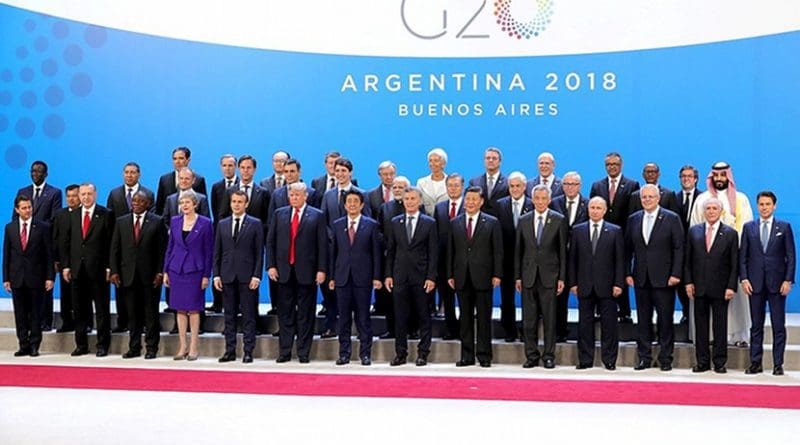Final Declaration At G20 Stresses Irreversibility Of Paris Agreement
By ABr
Gathered in Buenos Aires this Saturday (Dec. 1), G20 leaders from the world’s biggest economies approved the final declaration in which they highlight the irreversibility of the Paris Agreement, signed by a number of nations committed to the adoption of measures to mitigate the impact of global warming. The terms of the deal have been met with resistance from leaders in countries like the US, China, and India.
Food
In the opinion of the leaders at the event, the common challenges focus on tackling food security—hence the determination to stimulate rural areas, promote the sustainable handling of soils, water, and rivers with the support of small producers. “It’s crucial to making the world free of hunger and all forms of malnutrition.”
However, the text is clear in considering collaboration between public and private agencies key. The authorities have pledged to boost the efforts to engage both the private sector and the scientific community.
Equality
The declaration reports the G20 will publish a document outlining the plans for the development of the first childhood among girls. The text also mentions the efforts towards seeking gender equality as key for economic growth as well as fair and sustainable development.
The document mentions that the gender gap in the labor market should be brought to 25 percent by 2025. “We will continue to promote initiatives aimed at bringing an end to all forms of discrimination against women and girls, as well as gender-based violence. We commit to the promotion of economic empowerment of women.”
Health
The declaration underscores the need to support the actions of the World Health Organization (WHO) in devising the measures in order to meet the goals set for 2030, like quality health care systems which are safe and efficient.
The goals include strategies to improve sanitation systems, the end of HIV/AIDS contamination and other diseases, like tuberculosis and malaria.
Refugees
The document also names the common concern with “major movements by refugees” and the need to implement “common actions” in order to address the ingrained causes behind displacement and tackle increasing humanitarian needs. The text, however, does not list possible measures or warn about instances of abuse.
The declaration is put together at a moment in which the US tighten up its anti-immigration laws, and Europe closes its doors to immigrants attempting to escape hunger and political and ethnic persecution. In Brazil and South America, the attention is directed towards Venezuelans and Central Americans seeking refuge in neighboring countries.
Climate
Days before the Conference on Climate Change (COP24) in Poland, leaders warned about the impact of the 1.5ºC global warming and the need to endorse the Paris Agreement—a series of commitments made by a number of countries in a bid to mitigate the effects of global warming.
“The signatories of the Paris Agreement, who adhered to the Hamburg Action Plan, reaffirmed that the Paris Agreement is irreversible and committed to fully implement it, reflecting common but special responsibilities, with their respective capacities, in light of the different circumstances facing each country. We will continue to tackle climate change, promoting sustainable development and economic growth.”
Sources of energy
The document also highlights the “crucial role of energy” in helping building a shared future. However, the declaration argues that the search for alternate sources of energy should be based on “security, sustainability, resilience, efficiency, accessibility, and stability.”

